In a note to investors Friday, analyst Mike Abramsky of RBC Capital Markets said that the new partnership between Nokia and Microsoft may "inadvertently help" its competitors, namely Apple and Google Android, and possibly BlackBerry maker Research in Motion.
Nokia Chief Executive Stephen Elop, who formerly served as Microsoft's Business Division head, and Microsoft CEO Steve Ballmer issued a joint open letter Friday announcing the strategic alliance.
"Today, developers, operators and consumers want compelling mobile products, which include not only the device, but the software, services, applications and customer support that make a great experience," Elop said at a joint news conference in London. "Nokia and Microsoft will combine our strengths to deliver an ecosystem with unrivaled global reach and scale. It's now a three-horse race."
The announcement came just days after Elop had issued a surprisingly candid internal memo comparing Nokia's situation to "standing on a burning platform." Elop compared competition from Apple to an "intense heat," admitting that the iPhone maker had "disrupted the market by redefining the smartphone."
According to Abramsky, the deal between Nokia and Microsoft "could produce a stronger combined platform" on paper, but may instead result in gains for rival smartphone platforms.
The analyst notes that if successful, Microsoft could see its share of the global smartphone market rise from less than 5 percent to 30-35 percent. On the other hand, "the partnership may accelerate competitor share gains to Android, Apple and RIM," Abramsky said.
Apple, Android and RIM could present "possible disruptions to Nokia and Microsoft while making it work," though Microsoft has promised priority and customization to Nokia. Also, "possible carrier and Enterprise caution on adopting Nokia/Microsoft pending roadmap/product visibility" could affect early sales of Nokia's forthcoming Windows Phone 7 handsets.
Abramsky also speculated that existing Microsoft OEMs may further favor Android because of the increased competition. Finally, "developer hesitation, pending visibility to traction for the platform" could result in a boost for Apple and its rivals.
The analyst concluded by noting that the Nokia/Microsoft partnership could cause "ripple effects" to the smartphone industry and along the supply chain, "including setting up bigger battles between Nokia/Microsoft and Android/Apple/RIM for platform dominance at carriers, emerging markets, content and developers."
 Josh Ong
Josh Ong












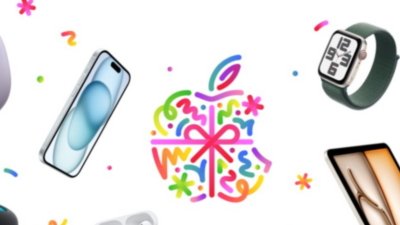
 William Gallagher
William Gallagher

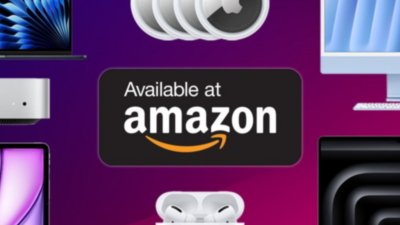
 Christine McKee
Christine McKee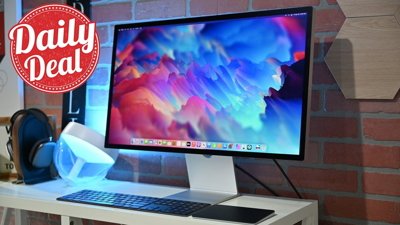
 AppleInsider Staff
AppleInsider Staff
 Chip Loder
Chip Loder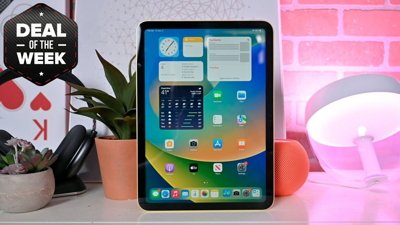
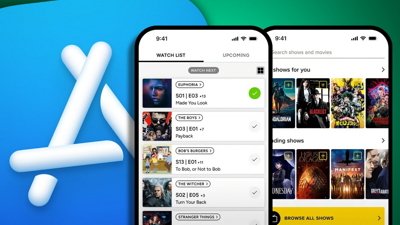
 Malcolm Owen
Malcolm Owen








31 Comments
Abramsky also speculated that existing Microsoft OEMs may further favor Android because of the increased competition. Finally, "developer hesitation, pending visibility to traction for the platform" could result in a boost for Apple and its rivals.
Meh - manufacturers weren't exactly flocking to MS anyway. The allure of "free" Android that they can molest at will combined with a probably justified fear of being "zuned" at some future point had already done WP7 in.
Nokia does not have any pull with customers as far as smartphones are concerned. Their market share is based solely on cheap phones and psuedo-smartphones.
Teaming up with M$ will achieve them nothing. The phones won't be any better than Apple's or Android.
If they pull the Symbian phones off and replace them with more costly M$ phones then their market share will plummet.
Meh - manufacturers weren't exactly flocking to MS anyway. The allure of "free" Android that they can molest at will combined with a probably justified fear of being "zuned" at some future point had already done WP7 in.
Yeah. Don't see a noticeable impact on Apple here. Also I don't see the kind of leadership taking hold that the MS/Nokia tandem would need. Who's in charge of this effort? Ballmer? Nokia execs? Nobody in particular? Then you look at the so-called 'independent' efforts of various sorts cooked up within MS in the past - they've all failed. Victims of corporate politics, ennui, whatever.
When Jobs came back to Apple, one of the first things he did was 'clean out the deadwood' there. He had to install, or re-install if you like, Apple's core culture. That's not happening at either MS or Nokia. They want to change their destinies, but they don't want to muss their hair doing it.
Fail.
Now Nokia is on board wil WP7, LG, Samsung, HTC will need to weigh their resources. Perhaps they will divert more R&D efforts on WP too, sort of intensified internal turf war. In the long run I think the future of Android is in the hands of cheap makers in China, Samsung, Mot will find it is hard to compete with every other guy who can throw out an Android in a couple month. WP on the other hand weeds out small players, so it may maintain a higher end product.
Boy, if this in-depth analysis I should have this guys job. If it works, MicroNokia could pick-up 30%-35% of the market. (Obviously no help to Google/Apple). But, if it doesn't - it will help Google/Apple. Well, duh.